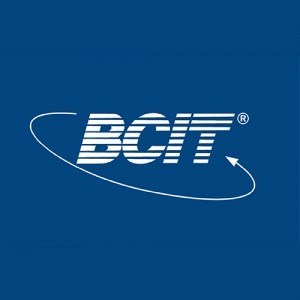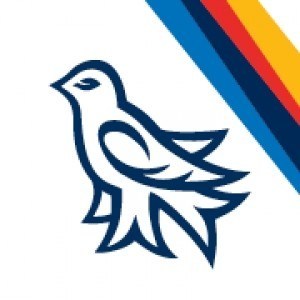Photos of university / #lifeatbcit
The Computer Systems — Wireless and Mobile Applications Development diploma program at the British Columbia Institute of Technology (BCIT) is designed to prepare students with the essential skills and knowledge required to excel in the rapidly evolving field of wireless and mobile technology. This comprehensive program focuses on the development, deployment, and management of mobile applications and wireless systems, equipping graduates with practical expertise that meets industry demands. Throughout the program, students gain hands-on experience in designing and programming applications for various mobile platforms, including smartphones and tablets, as well as developing robust wireless network solutions. The curriculum emphasizes key areas such as mobile app development, network security, wireless communication protocols, and user interface design, ensuring graduates can create innovative and secure applications tailored to various industries. Students also learn about the principles of computer systems architecture, programming languages, and database management, providing a solid foundation for understanding complex mobile and wireless environments. The program includes relevant lab work, projects, and collaborations with industry partners to give students real-world experience and facilitate networking opportunities. Graduates of this program will be well-equipped to pursue careers in mobile app development, wireless network engineering, systems analysis, and other related fields in the technology sector. BCIT's focus on practical skills and industry relevance ensures that students graduate ready to contribute effectively to the dynamic world of wireless and mobile applications development, making them valuable assets in the technology workforce.
The Computer Systems — Wireless and Mobile Applications Development diploma program at the British Columbia Institute of Technology offers students comprehensive training in designing, developing, and maintaining cutting-edge wireless and mobile applications. Throughout this program, students gain foundational knowledge in computer systems, networking, and mobile application development, preparing them for the rapidly evolving technology landscape. The curriculum combines theoretical instruction with practical, hands-on experience to ensure graduates are well-equipped for industry demands.
Students begin by exploring core concepts in computer hardware, software development, and system architecture. They learn programming languages such as Java, Kotlin, and Swift, which are essential for creating native mobile applications for both Android and iOS platforms. The program emphasizes user interface design, ensuring applications are not only functional but intuitive and user-friendly. Additionally, students delve into database management, cloud computing, and cybersecurity principles, enabling them to develop secure and efficient applications that can operate seamlessly across various networks and devices.
A significant component of the program is focused on wireless communication principles and mobile network infrastructures. Students study how wireless technologies such as Wi-Fi, Bluetooth, and cellular networks operate, learning how to optimize applications for different connectivity scenarios. The program also covers the development of applications that leverage GPS, Bluetooth, and NFC technologies, opening opportunities in fields like navigation, mobile payments, and IoT (Internet of Things).
Throughout the coursework, students engage in project-based learning, working on real-world problems to develop functional mobile apps. They collaborate in teams to simulate industry environments, fostering skills in communication, project management, and problem solving. The program also provides training in software development tools and environments such as Android Studio and Xcode, preparing students to work effectively in professional settings.
Graduates of this program will possess the skills necessary to design, develop, and deploy innovative wireless and mobile applications across various industries, including healthcare, finance, entertainment, and telecommunications. They are equipped to pursue careers as mobile app developers, wireless system analysts, or software engineers. The British Columbia Institute of Technology’s focus on practical skills combined with industry-relevant coursework ensures students are ready to meet the challenges of today’s technology-driven world.
Program Requirements for Computer Systems — Wireless and Mobile Applications Development at British Columbia Institute of Technology
The Computer Systems — Wireless and Mobile Applications Development program is designed to prepare students with the technical skills necessary to develop, implement, and manage wireless and mobile software applications. To successfully enroll in this program, prospective students must meet specific prerequisites and demonstrate foundational knowledge in related fields. A high school diploma or equivalent is typically required for admission. Applicants should have a strong background in mathematics, including algebra and introductory calculus, as well as proficiency in computer sciences. Familiarity with programming languages such as Java, C++, or Python is highly recommended to facilitate a smooth transition into more advanced coursework.
In addition to academic prerequisites, the program may require applicants to submit proof of English language proficiency if English is not their first language. Accepted tests often include TOEFL or IELTS scores that meet the minimum thresholds specified by the institution. Some applicants might also be asked to provide a statement of purpose or relevant work experience in the technology sector, emphasizing their interest and aptitude in wireless and mobile application development.
Once admitted, students are expected to complete a series of core courses covering topics such as mobile application programming, wireless network security, user interface design, and software development methodologies. Practical experience through labs, projects, and internships is an integral part of the program to ensure students gain hands-on skills applicable in real-world scenarios. To graduate, students must achieve passing grades in all required courses and fulfill any program-specific capstone or project assessments.
The program also emphasizes continuing education in emerging technologies like 5G networks, IoT (Internet of Things), and cybersecurity, preparing students for the rapid evolution of wireless communication fields. Upon completion, graduates are equipped with the technical expertise needed for careers in mobile application development, wireless network administration, and related roles in the IT industry.
Note: This information is based on standard program structures at BCIT and similar courses; for exact requirements, please consult the official BCIT website or admissions office.
The Computer Systems — Wireless and Mobile Applications Development program at British Columbia Institute of Technology offers various financial assistance options to support students throughout their studies. Students can explore scholarships, bursaries, and awards specifically designed for students pursuing technology and computer science disciplines. BCIT provides entrance scholarships based on academic achievement, which can significantly reduce the financial burden for high-achieving applicants. There are also dedicated bursaries for students demonstrating financial need, ensuring that capable students from diverse economic backgrounds have access to quality education. Additionally, the institute collaborates with industry partners and organizations to offer sponsorships and work-study opportunities that allow students to gain practical experience while earning income.
Furthermore, students are encouraged to apply for external scholarships and financial aid provided by government agencies and private foundations. The Canada Student Grants and Loans are available to eligible domestic students, offering low-interest loans and grants that assist with tuition and living expenses. International students should investigate scholarships available to international applicants, as BCIT offers various awards to recognize excellence and diversity in its student body. The institute's financial services department provides comprehensive advising on financial planning, scholarship application processes, and eligibility criteria.
On-campus employment opportunities are also available for students looking to supplement their income during their studies. These positions often relate to students’ fields of study, providing relevant work experience and networking opportunities within the industry. The program's overall cost includes tuition, program fees, and incidental expenses, but with the support of the numerous financial aid options, students can manage these costs more easily. BCIT strives to make education accessible by providing resources, guidance, and support for students seeking financial assistance, ensuring that aspiring wireless and mobile application developers can focus on their learning and future careers without undue financial stress.
The Computer Systems — Wireless and Mobile Applications Development program at the British Columbia Institute of Technology (BCIT) is designed to prepare students for careers in the rapidly evolving field of wireless and mobile technology. The program focuses on developing advanced skills in the design, development, and deployment of wireless applications, mobile software, and network systems. Students gain practical experience in programming languages such as Java, Swift, and other mobile development platforms, along with a strong foundation in networking principles, security, and data management specific to wireless environments. The curriculum covers essential topics including mobile application development, wireless networking protocols, device integration, and the deployment of mobile solutions across various platforms like Android and iOS. The program emphasizes hands-on learning through laboratory work, industry projects, and cooperative education opportunities, ensuring graduates are well-equipped to meet the demands of the telecommunications and information technology industries. Graduates of this program can pursue roles such as mobile application developers, wireless network engineers, and mobile system analysts, contributing to sectors such as telecommunications, healthcare, finance, and entertainment. The program is tailored to address current market needs and technological advancements, ensuring students are prepared to serve in innovative and technically demanding fields related to mobile computing and wireless communications.



